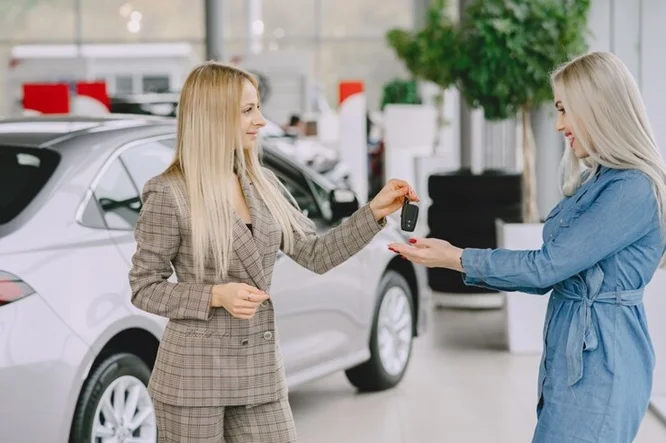The lease or buy decision is one of the most important you will have to make when acquiring a new vehicle. Each option has its own rewards and drawbacks, and the best solution for you will depend on your financial status, lifestyle habits, and your plans for the future. In this article we will delve into the advantages and disadvantages of Leasing vs. Buying a Car to help you decide which you should be doing.
What You Need to Know About Leasing vs Buying a Car
Car Leasing: When you lease a car, you are technically just renting a vehicle from a dealership or leasing company for a certain amount of time — usually two to four years. You pay monthly per the amount the car depreciates and how much you use it. At the end of the lease, you either return the car or buy it for an agreed price.
Purchase: If you purchase a car you pay for it in full or finance it with a bank. The car is your possession, and you can retain it as long you need to. If you finance it, your monthly payments will be applied to loan principal and interest.
The Pros of Leasing a Car Leasing vs Buying
Lower Monthly Payments – Most of the time the monthly payments for leasing are lower than the monthly payments for ownership. Part of the reason leasing is usually cheaper on a month-to-month basis than purchasing is because you only pay for the depreciation while you are leasing it and not the whole purchase price.
Leasing means driving a car every few years. With this hybrid ownership type, you can still enjoy the Latest Features Technology and safety advancements, but without the long-term commitment of an older vehicle.
Less Maintenance Hassle — Most lease terms line up with the manufacturer’s warranty, which covers major repairs. It minimizes the chances of surprise maintenance expenses and allows you to have a smooth running car
The Cons of Leasing a Car -Leasing vs Buying
No Equity: A leased car is still someone else’s property, you’re just renting it. You get zero equity, and when the lease period is up, the car is not yours. Which means you either lease another vehicle or purchase one.
Mile limits: https://driving.ca/commodity-reviews/insight/milage-limits-leases-will-limit-how-many-miles-you-can-put-on-the-car-typically-10-000-15-000-miles-a-year Drivers who pass that threshold can incur hefty penalties, and for drivers who drive more than normal each year, leasing is likely not a favorable option.
Restrictions on Customization: Since leased vehicles need to be returned in good shape, you cannot have major modifications/customizations done to the vehicle. They can charge you for any harm that extends beyond expected wear and tear.
Higher Overall Costs: Leasing generally has lower monthly payments; however, leasing multiple vehicles can end up being more expensive than purchasing a vehicle and keeping it for many years. It might be cheaper to buy a car if you intend to keep it for many years.
Lease agreements can be complicated and come with many fees, conditions, and terms that may not be overly clear. That means rents as low as $99 a month, but read the fine print, because there are a lot of costs involved with the lease.
The Pros of Buying a Car-Leasing vs Buying
Your Car, Your Equity: When you purchase a vehicle, it belongs to you. Eventually, you accrue equity in the car and it becomes yours once the loan is repaid. This can create a feeling of financial stability and a timeless asset.
No Mileage Limits: There are no mileage restrictions when you buy a car—in fact this related to how the total cost is calculated for leases. No penalties for excessive driving, which makes it better for people who have long commutes or go take regular road trips.
The Right to Modify: With driving you will also have the right to modify your vehicle. Be it upgrading the full-featured sound system enhancer, mount the new battery pack.
What You Should Consider
Here are factors a driver should consider when deciding whether to lease or buy.
Stable you: If you can afford a higher monthly payment and if you plan on having that car for years to come then get the auto. If you prefer lower payments and getting into a new car every few years, leasing may be a better option.
Your Driving Patterns: If you drive a lot, buying might be more affordable, since leases include mileage restrictions. Does: The higher the price = lower total price = if you want to update regularly / drive less
Length of Ownership: Leasing is suitable if you like to switch to a new vehicle every couple years; but, if you are buying car you plan to keep for the long haul, it will be less expensive to own.
Tax Factors: Whether to lease vs buy vehicles is also a function of taxes, particularly if you’re a business owner or want to write off vehicle expenses.
Personal preference: Decide what you require of a car yourself. Either for ownership or just that you want to personalize it or even because you want to get behind the wheel of the new generation, all of these things you demand will depend on your previous choices.
Conclusion
Like all choices in life, (like lease vs. Buy car), there are two sides of the fense and it will always come down to the pros/cons depending on your needs/situation. By carefully considering the factors outlined in this guide, you can make a choice that best delivers on your financial needs, driving habits and possible future life plans.
